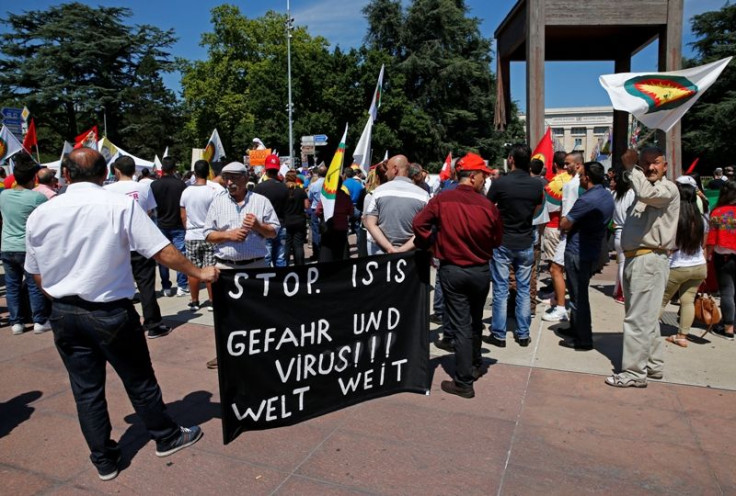ISIS bombing: Militant group claims responsibility for Cairo car bombing

The Islamic State of Iraq and Syria claimed responsibility for a car bombing early Thursday in Cairo that left as many as 29 people injured as a part of revenge for the execution of six men in May. These men were accused of belonging to Ansar Beit al-Maqdis, an extremist militant group, which has sworn allegiance to ISIS.
Egypt’s Health Ministry confirmed that the car exploded near the National Security Building in the northern suburb of Shubra al-Kheemag in Cairo. According to the interior ministry, six police officers were also among the injured ones.
The sound of the bomb was so loud that it echoed for miles, waking up residents at the odd hour, reported CNN .
The ISIS tweeted that the attack was to avenge the death of six “martyrs of Arab Sharkas,” who were hanged in May after they were found guilty in a military trial. Human Rights Watch reported that the men were part of a group of nine convicted for launching multiple attacks on police and killing two armed forces officers in a shootout in 2014.
However, the lawyers and relatives of three men said that the men weren’t involved in the attack as they were already behind bars when the bombing occurred.
In the recent past, Egypt has witnessed a sharp increase in Islamist insurgency, mainly after Egypt’s army ousted President Mohamed Morsy, a former Muslim Brotherhood leader. In late June, the country’s chief prosecutor was assassinated in a daylight bombing in the capital.
Across the last two years, the militants mostly launched brazen attacks on Egypt’s police and military. In another instance, a bombing partly destroyed a security headquarters in the Nile Delta city of Mansoura, north of Cairo, in December 2013 and in January 2014, a powerful bomb was planted, targeting the security directorate in Cairo.
In a bid to counter deadly attacks, President Abdel Fattah el-Sisi signed a tough counter terrorism law, which vests Egyptian authorities with stronger surveillance and detention powers. Critics are of the opinion that it would shut political opponents and the media .
Contact the writer at feedback@ibtimes.com.au, or let us know what you think below.





















